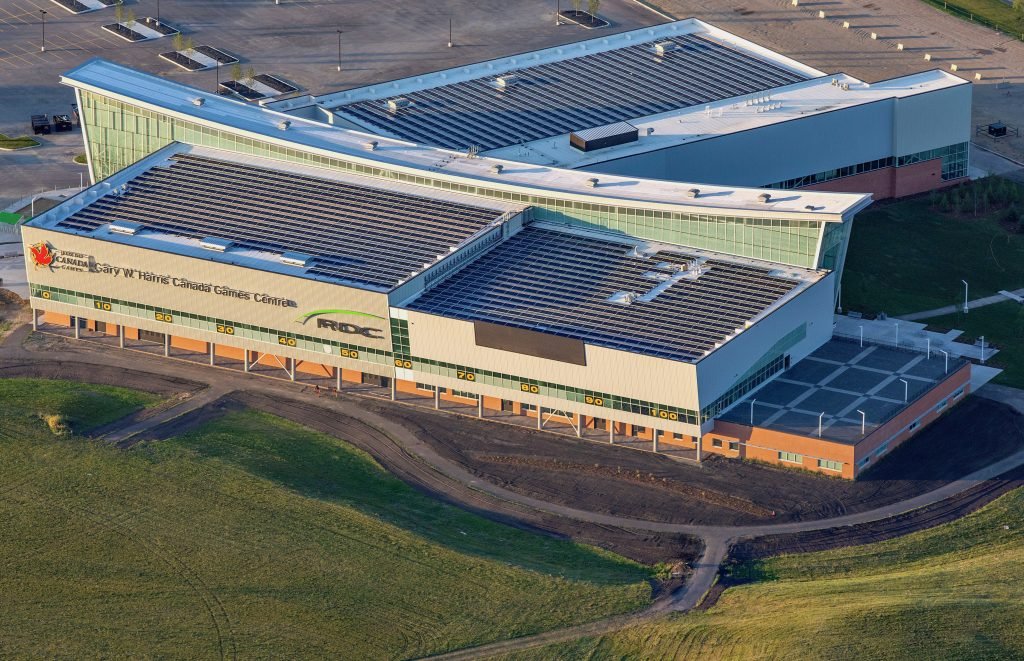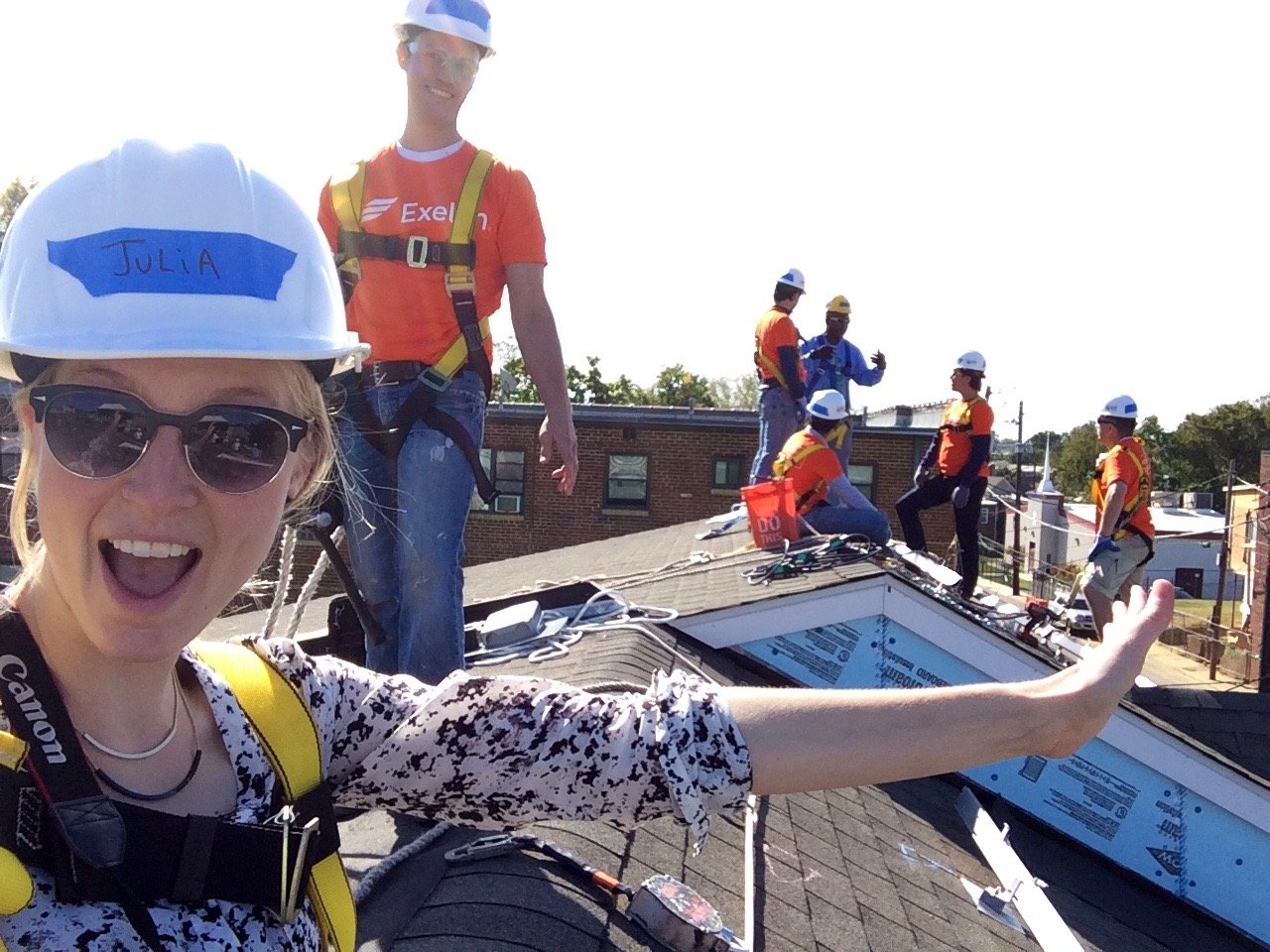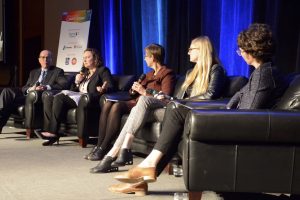By David Dodge and Scott Rollans
A young, Canadian-raised journalist is emerging as a leading voice in American clean energy. Julia Pyper grew up on an Ontario horse farm before heading to university in New York. She went on to cover climate change on Capitol Hill in Washington, D.C., and now works as senior editor at Greentech Media in Los Angeles.
As a writer for Climatewire in D.C., Pyper grew accustomed to peddling bad news. “Climate change is kind of the apocalypse beat, and that can be a little depressing,” she says. “The crisis is getting worse—as predicted—and potentially we only have something like 12 years to take the action needed.”
Now, at Green Tech Media, Pyper focuses on developments that may help us grapple with climate change. “Clean energy is interesting because it is a solution and potentially a critical one to solving the climate crisis. At the same time, it creates jobs. …So, it’s a really interesting win-win.”
Trump can’t stop the momentum
Earlier this year, Pyper spoke at the Pembina Climate Summit in Calgary. At the event, people asked if Donald Trump’s presidency had slowed U.S. momentum in clean tech. “The clean energy industry here is not slowing down,” Pyper says. “It has not been caught up in the partisanship as much as maybe it could have been.” States and corporations continue to advance the field, she says, despite the overt efforts in D.C. “The Trump administration has made it a priority to roll back Obama era climate policies,” she observes.
Interestingly, Pyper thinks the foot-dragging in Washington may lead to greater opportunities on our side of the border. “I would love to see personally Canada play an even bigger role,” says Pyper. “The country has the education system and has complementary immigration systems to attract talent. The U.S. is maybe going to lose that edge.”
She points to our province’s recent purchase of 600 megawatts of wind power at record low prices. “I think that opened a lot of eyes in Alberta.”
No “manels”
As a journalist and a young woman, Pyper is breaking new ground in the energy sector.
“I remember going to cover an auto show and someone was saying ‘oh which company are you modeling the cars for,’” says Pyper. “It’s a testament I think to how rare it is to have a woman in a professional capacity in some of these industries that I cover. But things are evolving.”
There are a lot more women in the clean energy space and there are women’s groups forming. “GreenTech Media’s analysts’ team has their own grid edge group for women in the grid edge industry” and there’s an effort to get gender balance on panels at events.
There’s a serious effort to avoid “manels”, panels dominated by men. “We do not have only men speaking so that’s been interesting to see the industry embrace. And I think it is part of being ingrained in that in a new progressive kind of sector that they’ve been proactive on a lot of diversity issues. That’s been cool to see.”

Julia Pyper with Her cohosts Republican Shane Skelton, former energy adviser to Paul Ryan and Brandon Hurlbut, a former White House staffer to President Obama.
Political Climate Podcast seeks common ground
Concerned by the hyper-partisanship in the U.S., Pyper has launched a podcast, Political Climate, as politically neutral territory for productive discourse. “It’s me along with a Democrat and Republican here in the U.S.,” Pyper explains. “They both worked in government, and we hash out the politics of energy and climate issues.” Her cohosts are Republican Shane Skelton, former energy adviser to Paul Ryan and Brandon Hurlbut, a former White House staffer to President Obama.
Along the way, they find plenty of common ground, says Pyper. “They definitely agree around the economic driver piece, right? It’s hard to say you don’t want jobs—especially in a time when the economy is evolving.”
Canada is not immune to deep partisanship on these issues says Pyper, who heard hints of politicians attacking environmental groups or perhaps even removing references to climate change from government documents.
“So that’s stuff that’s been talked about in the U.S. before. Florida, for instance, doesn’t talk about climate change in certain government documents and a lot of people are really disappointed in that.”
“I really hope people can come to the middle ground to realize what we’re talking about here is economic development opportunity and not trying to create conflict,” says Pyper.
At a recent talk at the University of Alberta, Pyper spoke about clean energy going mainstream. “We’re seeing it at Greentech Media, and on our research side—talking again about the opportunities, talking about how oil majors are investing more and more in this sector. It’s not just a ‘hippy’ kind of thing to do. This is real money, and real business.”
Alberta has what it takes to lead
With an established core of experience and investment in conventional energy, Pyper believes, Alberta is uniquely positioned to take a leadership role in Canada’s green energy sector. “Alberta, in particular, has so much energy knowledge and expertise. I hope that Alberta embraces this because I think that province could really be a leader in a way that we’ve never seen before in Canada.”
We have plenty of work ahead of us, but initial signs are promising. In the last three years, solar has increased 500 per cent in Alberta. The Solar Energy Society of Alberta’s website lists 232 companies offering solar systems and services.

The large solar array on the Gary W. Harris Canada Games Center at Red Deer College is just part of the 1.6-megawatt array that provides 66% of the electricity for the campus. Photo Kuby Energy
Red Deer College just installed 1.6 megawatts of solar and 1-megawatt cogeneration unit on their campus, one of the largest on an educational institution in Canada and big enough to provide 66 per cent of their electricity. When combined with energy efficiency initiatives the college says it’s saving $1 million a year in operating costs. A new alternative energy lab is gearing up to introduce the trades to clean technologies such as solar, wind, and cogeneration.
Time will tell if Alberta leverages its potential in clean energy, but Julia Pyper will certainly be watching our province with interest.




